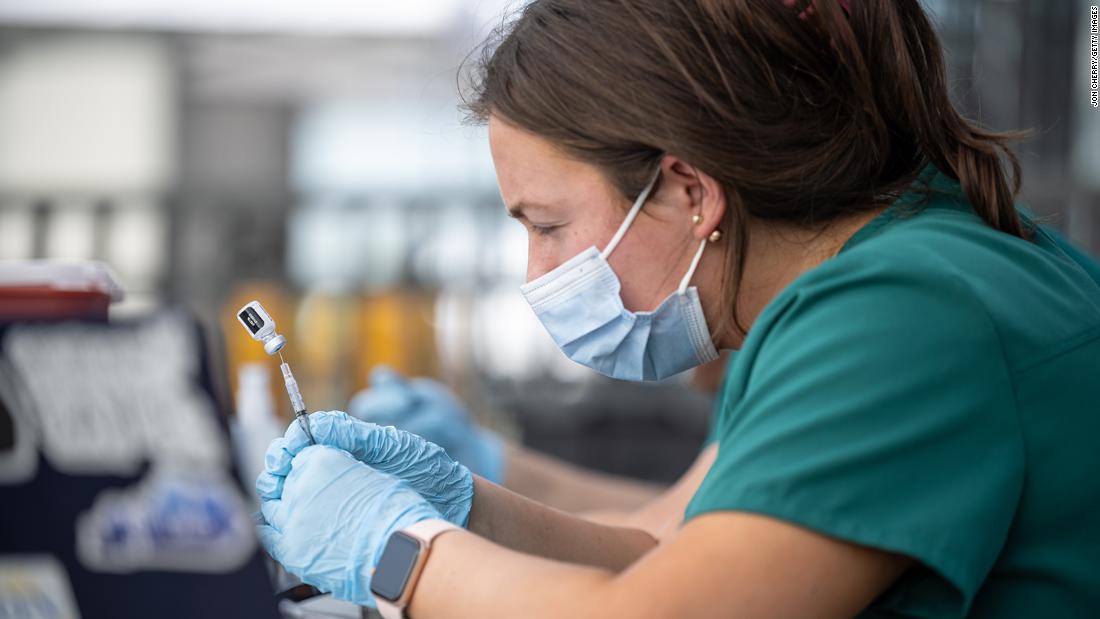US supports vaccine patent waiver proposal
The move is preliminary and will not guarantee the global patent rules are lifted right away. But the Biden administration’s signal of support amounts to a major step that aid groups and Democrats had been pressing for.
“The Administration believes strongly in intellectual property protections, but in service of ending this pandemic, supports the waiver of those protections for COVID-19 vaccines,” US Trade Representative Katherine Tai wrote in a statement.
President Joe Biden and Tai had been weighing the issue after calls from global advocacy groups and progressives to support waivers on World Trade Organization rules that had been proposed by India and South Africa. Biden as a candidate promised to support such waivers, but had been under pressure from pharmaceutical companies to keep them in place.
In the lead-up to Wednesday’s decision, administration officials led by Tai met with more than two dozen stakeholders in the vaccine patent debate, according to an official. That included trade partners, health experts and advocates, labor groups and the major vaccine manufacturers.
Once the information they gleaned was compiled, the department presented options to Biden, who ultimately decided to support the waiver in line with his campaign pledge.
Officials were clear, however, that patent rules will not immediately be eased based on Wednesday’s decision. Members of the WTO must unanimously decide whether to loosen the restrictions. And while the US had been a hold out, other countries — including the European Union and Switzerland — have also resisted the step.
“The Administration’s aim is to get as many safe and effective vaccines to as many people as fast as possible,” Tai said in her statement. “As our vaccine supply for the American people is secured, the Administration will continue to ramp up its efforts — working with the private sector and all possible partners — to expand vaccine manufacturing and distribution. It will also work to increase the raw materials needed to produce those vaccines.”
US Surgeon General Vivek Murthy on Wednesday said the Biden administration’s support of a Covid-19 vaccine waiver proposal “put people over patents.”
“To me it was a value statement,” Murthy told CNN’s Erin Burnett on “OutFront.”
Murthy emphasized the role of the US in helping lead the world through the global Covid-19 crisis, saying that “if we stick together, if we work together, if we help work and collaborate with countries around the world, I do believe we will turn this pandemic around.”
The patent debate had pitted some of the administration’s health and development experts against those inside the White House who were wary of angering major drug manufacturers like Pfizer and Moderna, whose products have allowed the country to begin returning to normal, according to people familiar with the internal dynamics.
Others inside the administration were concerned at the optics of Biden reversing a pledge he made as a candidate to “absolutely positively” commit to sharing vaccine technology if elected president. And some voiced concern at appearing overly deferential to big pharmaceutical companies against the wishes of progressives.
The debate landed at the feet of Tai, who had been gathering information on the topic before representing the United States at a meeting of the WTO’s General Council that got underway Wednesday. The White House said Tai would make a recommendation to Biden on whether to support a petition in front of the WTO sponsored by India and South Africa to waive an intellectual property agreement on pharmaceutical products.
Outside aid groups, liberal Democrats in Congress and other world leaders had all called on Biden to support easing some patent restrictions on vaccines. Indian Prime Minister Narendra Modi raised the issue in a phone call with Biden last week. And supporters of the move planned a rally in Washington on Wednesday to further pressure Biden.
On Sunday, chief of staff Ron Klain acknowledged that intellectual property rights were part of the problem of worldwide vaccine shortages, but that bigger issues lay in manufacturing.
This story has been updated with comments from US Surgeon General Vivek Murthy.
![]()


